Grand Final of the Herbert Smith Freehills Disability Mooting Championship: Oxford v Cambridge and Panel Discussion
Notes & Changes
Both the Grand Final and Panel Discussion will take place online. Register here for the webinar link.
About The Herbert Smith Freehills Disability Mooting Championship: Oxford v Cambridge
This prestigious moot court competition has been established by the Oxford Law Faculty to promote the intellectual study of disability and its intersection with domestic and international law. The free event is kindly supported by Herbert Smith Freehills. Members of the University, invited guests and members of the public are welcome to attend the Grand Final and Panel Discussion.
Grand Final
You are invited to attend the Grand Final of the Herbert Smith Freehills Oxford Disability Mooting Championship, which will take place online at 3PM on Saturday, 14 November 2020. Watch skilled law students go head to head in this mock court case to debate a legal problem about issues affecting persons with a disability. The talented finalists will showcase the challenges faced by academics and legal practitioners who work in this field. Audience members will have the opportunity to hear the reasoning of these senior judges and witness their interactions with contestants. You can access the Moot Problem here (accessible read version available here). Trigger Warning: Please note that the moot problem contains references to violence.
The Grand Final will be judged by:
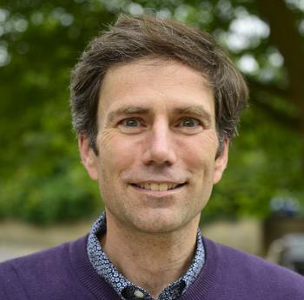
Professor Jonathan Herring, DM Wolfe-Clarendon Fellow in Law and Vice Dean of Exeter College, Oxford. Jonathan studied Law at Hertford College, Oxford before qualifying as a solicitor. Jonathan’s research focuses on areas of key importance- our families, our friends and our bodies. Jonathan teaches Criminal Law, Family Law and Medical Law and Ethics. Jonathan has also written leading textbooks in these areas. His books include: Law and The Relational Self (CUP, 2019); Vulnerability, Childhood and the Law (Springer, 2018); Vulnerable Adults and the Law (2016), Caring and the Law (2014); European Human Rights and Family Law (Hart, 2010) (With Shazia Choudhry); Medical Law and Ethics (OUP 2020); Criminal Law, (Oxford University Press 2020); Family Law (Pearson, 2018).
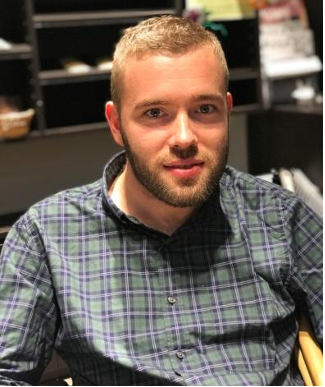
Dr Brian Sloan is a Fellow and Director of Studies in Law at Robinson College, Cambridge, where he teaches Family Law, Equity and Land Law. He read for his BA in Law and his LLM at Robinson, and his PhD at Gonville and Caius College in Cambridge. His research interests include formal and informal care, and public and private approaches to care, and their impact on human and property rights.Brian’s books include: Informal Carers and Private Law (Hart Publishing, 2013, a winner of a University of Cambridge Yorke Prize); and Landmark Cases in Succession Law (ed, Hart Publishing, 2019). Brian’s recent papers include ‘Adult Social Care and Property Rights’ and ‘The “Social Contract”, Care and Inheritance in England and Hong Kong’.
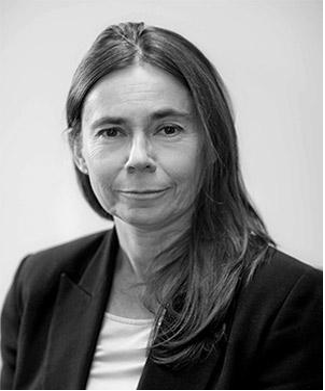
Zoe Johnson QC is a Barrister with tenancy at QEB Hollis Whiteman chambers. Zoe was called to the Bar in 1990 and took silk in 2012. Zoe’s practice areas include Crime, Corporate & Financial Crime, Regulatory and Public Law. Zoe is the second woman ever to have been appointed Senior Treasury Counsel (professionals with high standards and expertise in the most serious and complex cases appointed to advise various government departments and the Director of Public Prosecutions on the most complex, high profile and serious cases in the country). Zoe is also a founding member of the Bar Disability Panel.
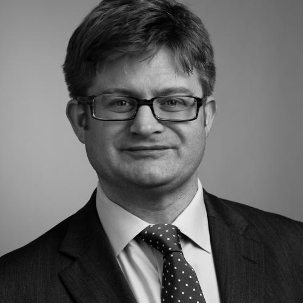
Daniel Hudson, a law graduate from Keble College, Oxford, is a corporate crime and investigations partner at Herbert Smith Freehills with experience in business and human rights. Daniel advises and represents corporate, institutional and individual clients with a particular focus on corruption, sanctions, fraud, regulatory investigations, insider dealing, money laundering, accounting irregularities and connected disputes. He helps clients implement policies and processes in line with the UN Guiding Principles on Business and Human Rights. Daniel also advises on internal and external investigations including those conducted by the UK SFO, FCA, Police and HMRC.
Panel Discussion
The Grand Final will be followed by a Panel Discussion on the theme The Right to Health: has the COVID-19 pandemic eroded the health equality and access to adequate healthcare for disabled people in the UK?
During the ongoing coronavirus crisis, disabled people in the UK have died on a tragic scale. Panellists will explore the following questions:
- How have changes to law and policy through the Coronavirus Act 2020 and The Health Protection (Coronavirus) Regulations 2020 have affected the care that people with disabilities receive?
- How has the return of the concept of ‘vulnerability’ in guidance on shielding affected the access to service of disabled people and society’s perception of us?
- What health and other inequalities has the pandemic revealed?
- What can and should be done by government to ensure there is a disability inclusive response to the pandemic and its long term socio-economic impact?
This year's panellists are:

Chair: Professor Tom Shakespeare trained at Cambridge University, and has worked at Sunderland, Leeds, Newcastle, University of East Anglia and London School of Hygiene and Tropical Medicine, where he is currently professor of disability research. He has conducted research on disability and sexuality, with disabled children, on bioethics, on restricted growth, on independent living, on rehabilitation, on inclusive education and on employment of disabled people. He is currently conducting research with disabled people in UK and several developing countries about the impact of Covid-19. He also spent five years in the WHO Disability and rehabilitation team. His books include Disability Rights and Wrongs and Disability – the Basics. He broadcasts regularly on BBC Radio.

Steve Broach is a barrister at 39 Essex Chambers who specialises in disability rights cases. He has acted in a number of the leading Supreme Court cases involving disabled people, including Mathieson, Cheshire West and Aintree v James. He has also been instructed in a number of the challenges resulting from the impact of the Covid-19 pandemic on disabled people, including the successful challenge to the NICE guideline on treatment prioritisation which initially incorporated a ‘frailty’ scale. Prior to coming to the Bar, Steve worked in the voluntary sector in policy and campaigning roles, including at the National Autistic Society and the Council for Disabled Children. Steve is co-author of the leading practitioner text on disabled children and young people’s rights (Disabled Children: A Legal Handbook, Legal Action Group, 3rd edition, 2020).
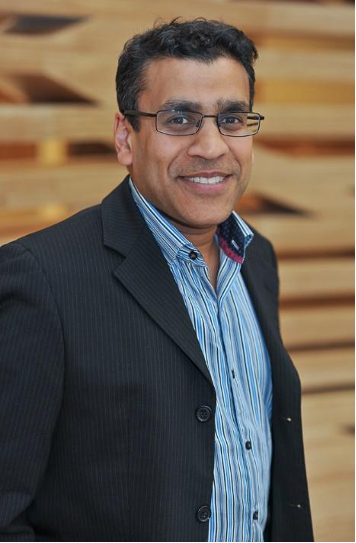
Kush Kanodia is Chief Disability Officer at Kaleidoscope Group, a Social Entrepreneur, a disabled BAME systems leader, and a champion for equality & inclusion. Kush creates systemic change for the benefit of disabled people and focuses on the intersection between disabilities. His portfolio includes Health & Wellbeing, Technology & Accessibility, Sports & Inclusion and Employment & Entrepreneurship. Kush was a Torch Bearer for the Paralympic Games in London 2012, selected for his dedication to disability rights. He was recognised as being in the top 10 most influential BAME leaders in technology. In 2019, Kush received the Asian Achievers Award for Entrepreneur of the Year, was included in the BAME 100 Business Leaders Index by Green Park and received the Social Entrepreneur of the Year Award by TiE London. Kush also featured 2nd in the Disability Power 100, the list of most influential disabled people in the UK. In 2020, Kush led the #NoWheelChairTax campaign to success. Transforming the NHS in England, by abolishing all disabled car parking charges from 206 NHS hospitals and helping 2.5 million disabled people with a Blue Badge to access critical healthcare. Kush’s new campaign is to create a standardized and compassionate disabled parking policy for London, England & the UK.

Lucy Watts is a prominent patient advocate, disability activist, consultant, speaker and social entrepreneur. She is committed to using her time, energy and skills to make an impact in society and to improve the lives of others. Lucy received an MBE at the tender age of 22 for her “services to young people with disabilities”. In 2019 she was voted the 9th most influential disabled person in Britain. Her business, Lucy Watts Ltd., provides training, consultancy, speaking, workshops, project management and support with digital marketing for charities and healthcare organisations, along with Independent Advocacy and care package brokerage to disabled and chronically ill individuals and their families. She also works for Festival Spirit, who provide accessible accommodation at festivals, doing admin, marketing and other tasks, and provides some support to RISE Expo. Lucy is also renowned public speaker on healthcare and gave a popular TEDx talk in 2019 for TEDxNHS, where she challenged people to talk about death and dying and plan for it and to accept it as an inevitability.
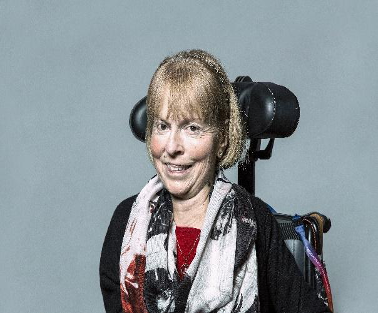
Jane Campbell, Baroness Campbell of Surbiton is a cross-bench peer of the House of Lords. A Disability Rights Commissioner until it was wound up in October 2006, Jane was Commissioner of the Equality and Human Rights Commission (EHRC) from 2006–2008 and chaired the influential Disability Committee which lead on the EHRC Disability Programme. She was the former Chair of the Social Care Institute for Excellence (SCIE). A powerful advocate of independent living of disabled people, Jane co-founded and directed the National Centre for Independent Living (NCIL), chaired the Independent Living Strategy Group (ILSG), was a Co-Chair of the British Council of Disabled People (BCODP) and is a founding member of Not Dead Yet UK. Baroness Campbell is a renowned disability rights activist and was instrumental in the disabled people’s movement which led to the United Kingdom’s first Disability Discrimination Act 1995. Amongst her many academic achievements and associations, she has an Honorary Doctorate in law from Bristol University and a Fellowship at University College London (UCL). She was appointed to the House of Lords in 2007 and is a Member of House of Lords Appointments Commission.
Timetable
- 2.45PM: Audience admission via Zoom
- 3.00PM: The Grand Final of the Herbert Smith Freehills Disability Mooting Championship: Oxford v Cambridge
- 4.15PM: Short Break
- 4.30PM: Panel Discussion on: ‘The Right to Health: Has the COVID-19 Pandemic Eroded the Health Equality and Access to Adequate Healthcare for Disabled People in the UK?’
- 5.50PM: Announcement of 2020 Mooting Champions
- 6PM: Event Ends
Click here to download the full programme.
The Law Faculty and Organising Committee are grateful for the generous support and enthusiasm provided by Herbert Smith Freehills and their Disability Network.
The Organising Committee
Dr Marie Tidball, Chair
Dr Marie Tidball is a founding director and coordinator of the Oxford University Disability Law and Policy Project. She is a Research Associate at the Centre for Criminology and the Faculty of Law, Bonavero Institute of Human Rights and Wadham College. Her academic interests concern the intersection between disability and society with a specific focus on the criminal justice system. In addition to her academic pursuits Marie has extensive experience of project managing award-wining campaigns aimed at driving disability inclusion within academia, civil society, and government. Prior to her academic career Marie worked as a broadcast journalist for Channel 4 News. the Faculty of Law, Bonavero Institute of Human Rights and Wadham College.
Dr Luke Rostill, Vice Chair
Luke Rostill is a Tutorial Fellow in law at Trinity College, Oxford, and Associate Professor of Property Law in the Oxford Law Faculty. He went to school in Swindon and then studied at a further education college before arriving at Wadham College, Oxford, as an undergraduate law student. He stayed at Wadham to do the BCL, MPhil and DPhil. Luke currently teaches Land Law, Personal Property, Roman law and Trusts at undergraduate level, as well as the BCL/MJur Advanced Property and Trusts course.
Dr Rachel Clement Tolley, Vice Chair (Cambridge)
Dr Rachel C. Tolley is the John Collier Fellow and College Lecturer in Law at Trinity Hall, Cambridge, where she teaches Criminal Law and Tort Law. Rachel attended a state school in the North East of England, before studying law as both an undergraduate, BCL and DPhil student at Wadham College, Oxford. Rachel’s research interests focus on the effect of deception and mistake on the validity of consent to sexual activity in English criminal law. She is also interested in constructions of “the body” in the law of the non-fatal offences against the person.
Sekela Ngamilo, Student Chair
Sekela is a second year Law student at Lincoln College. As a person who identifies as disabled, she was scared about attending a highly competitive university like Oxford but was encouraged by watching the HSF Disability Moot in her first year and wished to learn more while taking part in raising awareness about the legal challenges disabled people face. She has enjoyed working with the committee to bring all aspects of the moot together, especially looking at intersections between disability, social issues and the law. She hopes that this will not only bring attention to issues facing people who are disabled but also encourage more to talk openly about them. In her spare time she enjoys acting, roller skating and knitting.
Katie Bacon, Student Vice Chair (Mooting)
Katie Bacon is a second year Law student at Balliol College, Oxford. Katie wanted to be involved because she enjoys working to improve access and outreach and felt that the Championship was a fantastic opportunity to explore access from a range of perspectives. She believes that all lawyers should think deeply about the legal issues affecting people with a disability, not only in an academic context but to improve accessibility at all levels going forward. Katie has loved putting together the moot problem with fellow committee members and is really excited to see the mooters in action!
Bryony Toon, Student Vice Chair (Logistics)
Bryony is a second year Law with Law Studies in Europe undergraduate at Brasenose College, Oxford. She wanted to get involved with the HSF disability moot because she believes that there needs to be more open conversation regarding disability and it’s intersections within society and thought this opened good opportunities for conversation and engagement.
Selin Cavdar, Access Officer
Selin is a second year undergrad Law student at St. Peters College, Oxford, and the Access Coordinator for the moot. She got involved in this moot because she believes that working in a moot that touches upon an area of law that is of high importance to many people raises awareness as well as providing her an opportunity to promote this issue. It is a valuable experience to be involved in the organising committee of a moot and to gain experience in the procedural aspect of a mooting competition.
George Twinn, Treasurer and Undergraduate Mooting Coordinator
George is a fourth year Law student at St. Hilda’s who has just finished their year abroad in Paris. Despite being locked in a small Parisian apartment, he was unable to escape the desire to continue his involvement in English law. The Herbert Smith Freehills Oxford Disability Mooting Championship is a unique competition that requires mooters, as well as those involved in writing the problem, to take a step back and consider how the approach that the law takes affects people in different situations to one’s own. This year’s problem, and the research it necessitated, has been really interesting and enlightening at an intersection that, unfortunately, the standard law degree does not fully consider (yet!).
Avantika Sengupta, Communications Officer
Avantika is a second year law student at St Hilda’s College, Oxford, who is involved with promoting the moot. She is interested in the potential within the law to fight the inequality and discrimination faced by individuals with disabilities, which has led her to seek a position on the committee. She hopes that the moot will encourage conversations regarding how accessibility can be improved and will raise awareness regarding the legal challenges affecting those with disabilities.


 Add to calendar
Add to calendar


